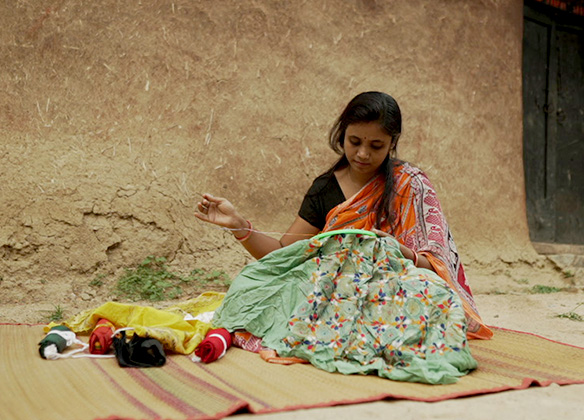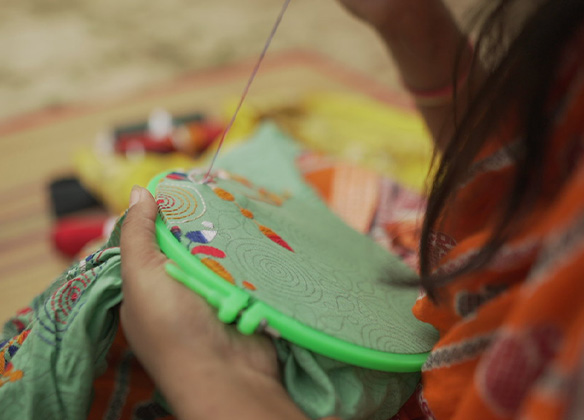

Jhumpa, Somasree, and Urboshi hail from the picturesque villages of West Bengal, where the art of kantha embroidery and banana fibre handicraft flows through their veins. In the heart of India's rural landscape, they are just three among a group of enterprising artisans determined to revive timeless crafts.
The handicraft sector is inherently green with a very low carbon footprint. Moreover, it is a decentralised sector, providing dignified livelihoods to many rural women who strike a beautiful balance by producing exquisite handiwork while catering to their families at home. What’s more, India is witnessing a dwindling number of working women in rural areas, especially compared to their urban counterparts. These women, despite their remarkable skills, often struggle to find gainful employment that genuinely honours their craftsmanship.

To offer a sustainable, replicable model for artisan-based enterprises that place skills like kantha embroidery and banana fibre handicrafts at the forefront, we stepped in with our NGO partner, the All India Artisans and Craftworkers Welfare Association (AIACA).
Our work is dedicated to developing and promoting micro and nano social enterprises based on handicrafts and textiles across India. This collaboration not only opens new doors to a wider market but also emphasises the importance of sustainability. The local market, once hampered by capacity constraints, now benefits from the expertise brought to the table. This results in the creation of higher quality, more desirable products.
The initiative rooted in the Birbhum district of West Bengal is igniting a wave of change in the region. Taking an integrated approach, the partnership delves into market-led design development and capacity building on several aspects of enterprise management, brand building, and marketing to equip women with the skills necessary to run their social enterprises successfully.
The initiative also imparts life skills to rural artisans, makes them aware of their social entitlements, underscores the necessity of maintaining quality and creating market-oriented designs, and gives them the tools to plan their finances at the enterprise as well as individual levels. Moreover, our partnership has re-emphasized the need to enhance the social security of women artisans by linking them to various government schemes.

Today, these women artisans, the heart and soul of our intervention, not only provide a better life for their families but also have the resources to send their children to school.
As Jhumpa aptly puts it, "I could pursue my dreams because of my family's support, and I'm thankful to the Flipkart Foundation and AIACA for supporting me and the other women in our group." With the backing of the Flipkart Foundation and AIACA, artisans like Jhumpa look forward to expanding their reach and increasing their sales in larger markets. Their journey exemplifies the power of preserving traditional skills for sustainable livelihoods, creating a brighter future for rural artisans and their communities.